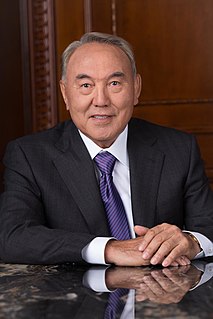A Quote by James D. Watson
I never could read science fiction. I was just uninterested in it. And you know, I don't like to read novels where the hero just goes beyond what I think could exist. And it doesn't interest me because I'm not learning anything about something I'll actually have to deal with.
Related Quotes
The second book, which was probably more from a professional standpoint - when I read Junot Díaz's Drown, I was like, Oh my god, you can write these stories and people will actually read them beyond your own little community. This guy's book is blowing up and it seems like [he's writing about] the neighborhood that I grew up in. That was a big deal. I read that in graduate school, so that's when I was really taking writing seriously, but I didn't know you could do it. I didn't know you can actually be an author. It was a weird epiphany.
I just don't trust any of it. Every time I read something about how there's been another ridiculous climb of the Dow Jones, there's a part of me that goes, “This can't be good.” None of this is real money. You know what I mean? It's not like there's actually more of anything. It's just ideas. When people are getting richer and richer but they're not actually producing anything, it can't end well.
It had also been my belief since I started writing fiction that science fiction is never really about the future. When science fiction is old, you can only read it as being pretty much about the moment in which it was written. But it seemed to me that the toolkit that science fiction had given me when I started working had become the toolkit of a kind of literary naturalism that could be applied to an inherently incredible present.
I studied piano from the age of three. My grandmother taught piano. I stayed at her house during the day while my parents worked. I obviously wanted to learn to play. And so she asked if she could teach me, and my mother said don't you think she's too young. My grandmother apparently said no. So I could read music before I could read, and I really don't remember learning to read music. So for me it's like a native language. When I look at a sheet of music, it just makes sense.
In Pakistan, many of the young people read novels because in the novels, not just my novels but the novels of many other Pakistani writers, they encounter ideas, notions, ways of thinking about the world, thinking about their society that are different. And fiction functions in a countercultural way as it does in America and certainly as it did in the, you know, '60s.
He'd met other prodigies in mathematical competitions. In fact he'd been thoroughly trounced by competitors who probably spent literally all day practising maths problems and who'd never read a science-fiction book and who would burn out completely before puberty and never amount to anything in their future lives because they'd just practised known techniques instead of learning to think creatively.




































